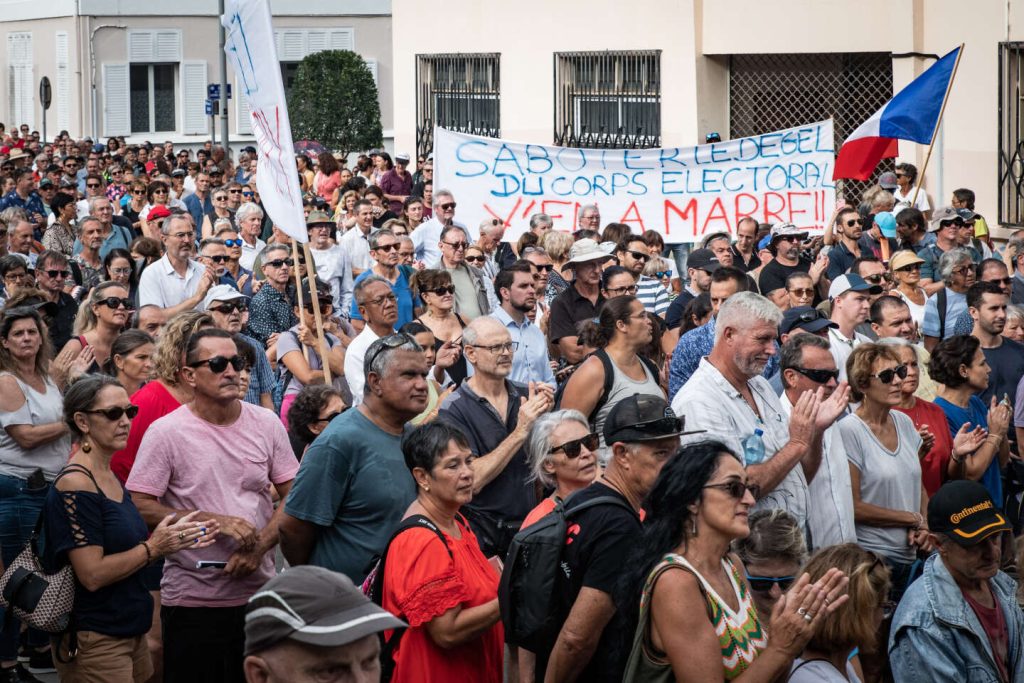The atmosphere in New Caledonia has been tense in recent days, with both pro-independence and anti-independence groups working together since the signing of the Nouméa Accord in 1998. This Accord established a collegial government representing all political sensitivities with seats in the Congress, the archipelago’s deliberative assembly. However, on March 21, the Loyalist (Renaissance) and Rally (The Republicans) groups of elected officials abruptly left the Congress and local government, declaring that they would no longer participate in sessions but rather protest outside. This move was a significant departure from their usual political actions.
A week later, on March 28, 3,800 people gathered in front of the Congress in response to a call from the anti-independence groups. Their demands included an end to fiscal reforms led by the pro-independence President of the government, Louis Mapou. The unrest was also fueled by national events, with Interior and Overseas Minister Gérald Darmanin proposing a constitutional reform aimed at changing the electoral body for provincial elections. Currently, around 40,000 people cannot participate in these elections, originally meant to protect the rights of long-term residents from newcomers with no real ties to the territory.
The proposed reform would relax the residency requirements for voting in these crucial elections, which determine representation in the Congress and the election of the government. This change has long been supported by the Loyalists but is opposed by the pro-independence groups who view the restricted electoral body as essential for discussions on the territory’s future status. They seek to maintain the right to self-determination and advocate for a new referendum on independence in exchange for considering the electoral reform. The differing stances on this issue have further exacerbated tensions between the two sides in New Caledonia.
The political situation in New Caledonia is further complicated by the potential economic and social crisis looming over the territory. The recent unrest and division among political groups have raised concerns about the stability and future of the archipelago. Both pro-independence and anti-independence factions face the challenge of finding a resolution to their differences while navigating the complexities of governance and representation in New Caledonia. The ongoing struggle for power and influence continues to shape the political landscape and public discourse in this small but politically significant territory.
As the standoff between the pro-independence and anti-independence factions persists, there is a growing need for dialogue and compromise to address the root causes of the current unrest in New Caledonia. The political and social tensions in the territory require a concerted effort from all parties involved to find common ground and work towards a peaceful and sustainable resolution. The future of New Caledonia hinges on the ability of its residents and political leaders to find ways to coexist and reconcile their differing visions for the territory’s future. It is a critical moment in the history of New Caledonia, with the potential for significant changes and challenges ahead as the territory navigates its path towards stability and self-determination.


